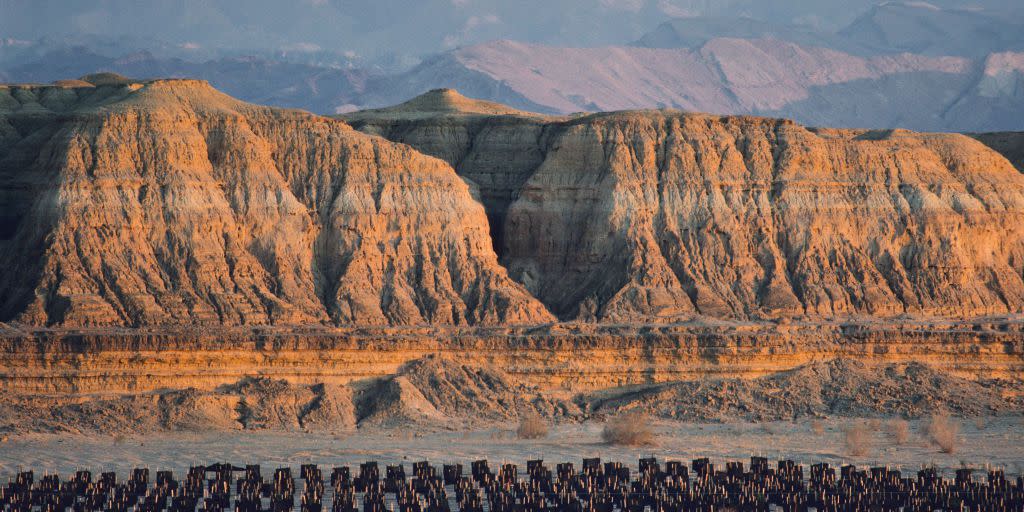Climate Change Could Turn Earth's Aquifers Into a Time Bomb

Groundwater is one of the most important resources on Earth. People use around 77 billion gallons of groundwater every day, nearly all of it originating in bodies of permeable rock known as aquifers. A new scientific study shows that if climate change wreaks havoc on the Earth's groundwater, it would present an environmental "time bomb" with global consequences. And we might not know until it's too late.
Over 2 billion people around the globe use groundwater as their primary source of water. This water is replenished through a model known as aquifer recharge (AR), and at this point includes natural and manmade methods. But both of these methods stem from a natural source-rainfall, which permeates aquifers through streams and lakes.
If rainfall were to suddenly slow down an AR process, the results could be devastating to an aquifer in need. And that the damage would not heal easily.
"Our research shows that groundwater systems take a lot longer to respond to climate change than surface water, with only half of the world's groundwater flows responding fully within 'human' timescales of 100 years," says Mark Cuthbert from Cardiff University's School of Earth and Ocean Sciences, speaking in a press release.
"The effect we are having now is going to have this really long lag-time in terms of climate change. There's a memory in the system -- and the memory is very large in some places."
Using groundwater model results in combination with hydrologic datasets, Cuthbert and his team were able to create timescales showing how groundwater system would likely respond to climate change.
These systems varied across the planet. Humid aquifers, like those in Florida, would be able to replenish themselves faster. Aquifers in arid locations, like Arizona's Verde River basin, would face a much steeper climb back to normalcy.
"Parts of the groundwater that's underneath the Sahara currently is still responding to climate change from 10,000 years ago when it was much wetter there," Cuthbert says, speaking to the AFP. "We know there are these massive lags."
On the whole, scientists predict that global warming will intensify current perception situations. Dry areas will get drier, wet areas will get wetter. That could make for a perilously uneven situation across the globe in terms of water supply.
Source: Cardiff University
('You Might Also Like',)

